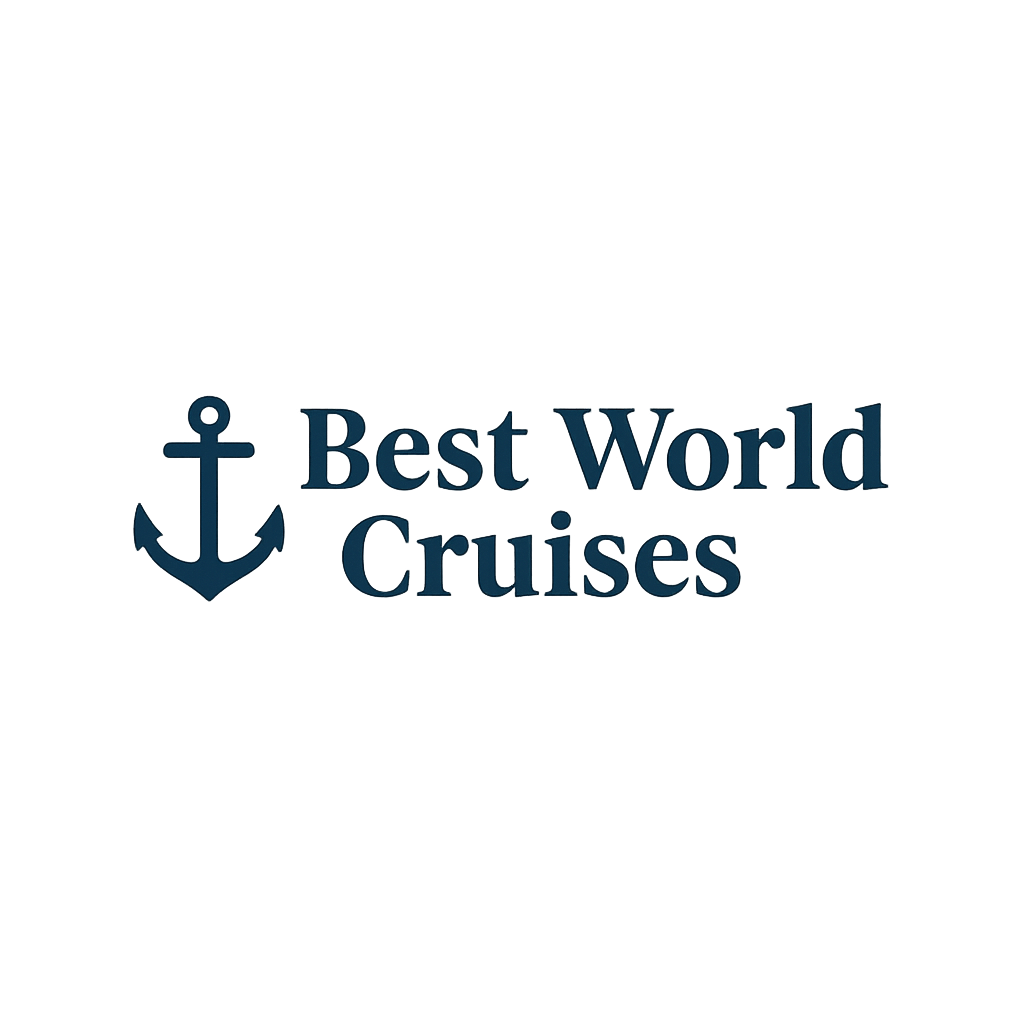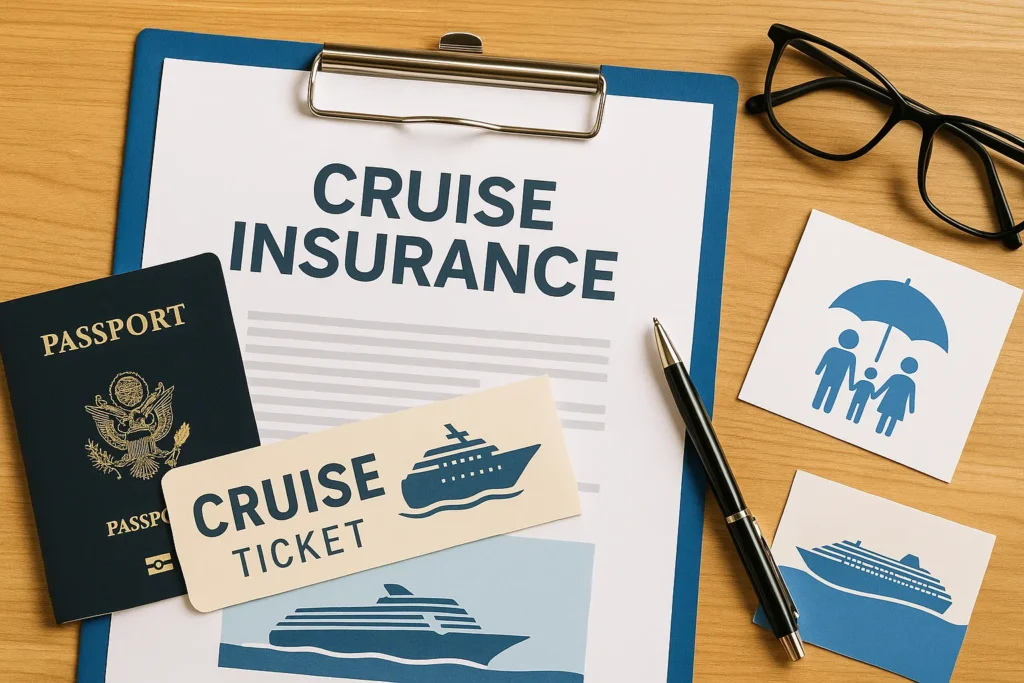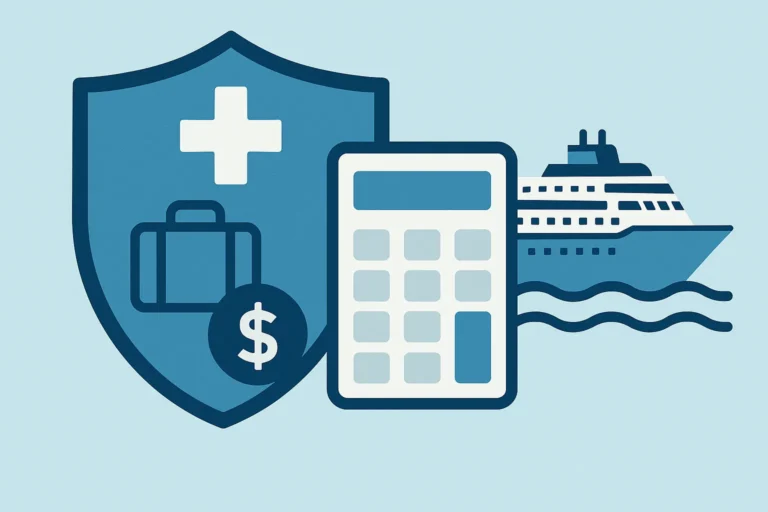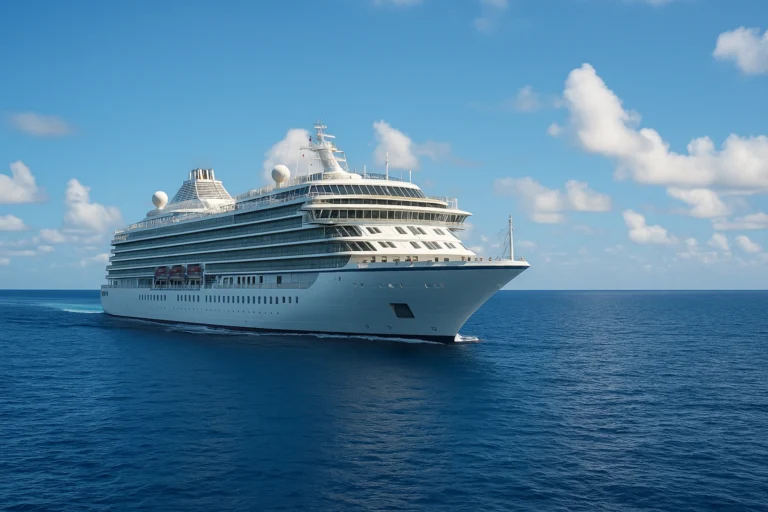Top 5 Cruise Insurance Providers Compared
The allure of a cruise is undeniable: shimmering waters, exotic destinations, gourmet dining, and endless relaxation. It’s a dream vacation for many, a perfect escape from the everyday. However, even the most meticulously planned journey across the seas can encounter unexpected turbulence. From a sudden illness on board to a last-minute trip cancellation due to an unforeseen event, or even the frustrating reality of lost luggage, unforeseen circumstances have the potential to swiftly transform your dream into a stressful and costly ordeal. This is precisely where **cruise insurance** steps in – acting as a vital financial safeguard for your significant investment and, more importantly, providing invaluable peace of mind throughout your voyage.
Navigating the myriad of insurance providers and policy options can feel overwhelming, making the process of choosing the right coverage seem daunting. That’s why we’ve meticulously put together this comprehensive guide. We’ll delve into a comparison of top cruise insurance providers, helping you understand the key elements to look for, and empowering you to make a truly informed decision that’s perfectly suited for your next grand adventure on the high seas.
Why Cruise Insurance is an Indispensable Investment for Your Voyage 🛡️🚢
While every traveler hopes for nothing but smooth sailing, securing robust cruise insurance offers crucial and extensive protection against a wide array of potential disruptions, both minor and major:
- Emergency Medical Treatment and Evacuation: Perhaps the most critical benefit, standard health insurance policies, including many national healthcare plans, often provide very limited or absolutely no coverage once you are outside your home country’s borders or operating in international waters. Cruise insurance can cover the often exorbitant costs of emergency medical treatment received on board the ship or in foreign ports. Crucially, it also covers emergency medical evacuation, which can easily accrue costs ranging from tens to hundreds of thousands of dollars, depending on the severity and location.
- Trip Cancellation and Interruption Protection: Life is unpredictable. Whether it’s a sudden, severe illness affecting you or a family member, an unexpected family emergency back home, or even the cruise line encountering significant mechanical issues that force a cancellation, insurance can provide reimbursement for your non-refundable expenses if your trip is canceled before departure or cut tragically short. This protects your substantial financial outlay on flights, hotels, and the cruise fare itself.
- Baggage Loss, Damage, or Delay: The frustration of lost or delayed luggage can cast a significant shadow on the start of any vacation. Insurance can offer financial compensation for lost or damaged bags and provide funds to purchase essential items if your luggage is significantly delayed, allowing you to enjoy your initial days worry-free.
- Travel Delays and Missed Connections: It’s not uncommon for missed flights to lead to missed embarkation, or for adverse weather conditions to necessitate sudden itinerary changes. Travel delays are an unfortunate reality of modern travel. Insurance can cover additional, unforeseen accommodation expenses or alternative travel arrangements incurred specifically due to such delays, helping you catch up to your cruise or return home.
- Repatriation of Remains: While it’s an incredibly unpleasant thought to entertain, in the tragic and rare event of a death during your trip, insurance can cover the significant and complex costs associated with returning remains home, alleviating an immense burden from your family during a difficult time.
Key Factors to Scrutinize When Selecting Your Ideal Cruise Insurance 📝🔍
It’s important to recognize that not all insurance policies are created equal, and what’s perfect for one traveler may not suit another. When diligently comparing **cruise insurance providers**, consider these critical factors to pinpoint the best fit for your specific trip, personal circumstances, and budget:
- Comprehensive Coverage Limits: Beyond just having “coverage,” carefully examine the specific maximum payout limits for each individual benefit, such as emergency medical expenses, trip cancellation, and baggage. Do these stated limits realistically and adequately cover your potential financial risks and the total cost of your trip? Higher limits generally offer greater protection.
- Included Benefits Beyond the Basics: What additional protections are folded into the policy? Look for specific benefits like missed connection coverage (crucial if you have connecting flights), coverage for port-of-call cancellations (if a port is skipped due to weather or civil unrest), or even rental car collision insurance if ground transportation is part of your extended travel plan.
- Understanding Exclusions and Limitations: This is arguably the most crucial section where the fine print demands your full attention. Pay very close attention to any stated exclusions, especially concerning pre-existing medical conditions (many policies require specific criteria or a waiver purchased early on), coverage for adventurous activities (like zip-lining or particular water sports), or the often-discussed “cancel for any reason” (CFAR) options, which typically come at an additional premium and have specific rules.
- Balancing Cost Against Value: The temptation to choose the cheapest policy is understandable, but it’s rarely the wisest choice. Strive for a balance between the premium you pay and the comprehensiveness and robustness of the coverage offered. A slightly higher premium for significantly better protection is often a worthwhile investment.
- Customer Service Excellence & Streamlined Claims Process: Should the unforeseen occur, the last thing you need is a difficult or unresponsive insurance provider. Research their reputation for timely and helpful customer support and the ease of their claims filing process. A transparent and efficient claims procedure is truly invaluable when you need to use your policy.
Top 5 Cruise Insurance Providers Compared (Illustrative Examples) 📊⭐
Below, we outline some common archetypes of providers and their typical strengths, offering a generalized comparison. Remember, to make a real decision, you must always obtain personalized quotes and thoroughly review the specific policy documents tailored to your unique trip. (Note: These descriptions are illustrative examples based on common market offerings, as real-time comparisons of specific companies’ 2025 offerings are beyond the scope of this general guide and would require live data.)
1. Provider A: The Comprehensive Conqueror (e.g., “GlobalVoyage Secure”)
- Strengths: This type of provider is renowned for offering robust, all-encompassing coverage plans. They are ideally suited for higher-value, perhaps longer or more exotic cruises, where the financial stakes are greater. Policies often boast very high medical limits, strong and flexible trip cancellation benefits, and frequently offer the highly sought-after “Cancel For Any Reason” (CFAR) upgrade.
- Best For: Luxury cruise travelers, individuals with significant pre-existing medical conditions (provided appropriate waivers or conditions are met), or anyone who desires the ultimate level of peace of mind and financial security.
2. Provider B: The Budget-Friendly Buddy (e.g., “OceanGuard Protect”)
- Strengths: Providers in this category typically offer highly competitive prices for essential, core coverage. Their focus is on providing fundamental benefits such as emergency medical coverage and basic trip cancellation, without including excessive frills or highly specialized clauses. This makes them a practical choice for cost-conscious travelers.
- Best For: First-time cruisers, travelers embarking on shorter or less expensive trips, or individuals whose primary concern is obtaining basic financial protection against major unforeseen events.
3. Provider C: The Family Favorite (e.g., “SailSafe Insurance”)
- Strengths: These providers frequently design policies with families specifically in mind. They often include attractive features such as complimentary coverage for young children traveling with adults or offer unique benefits tailored for family-related emergencies. They typically place a strong emphasis on comprehensive trip interruption and robust medical care for travelers of all ages within the family unit.
- Best For: Families traveling with children, large multi-generational cruises, or any travel group where a single, unified, and family-oriented policy is desired.
4. Provider D: The Adventure Enthusiast’s Ally (e.g., “HorizonShield Insurance”)
- Strengths: Providers in this niche specialize in offering policies that explicitly cover a broader range of adventurous activities that might typically be excluded from standard travel insurance plans. This could include specific water sports like scuba diving (often requiring an extra certification or depth limit), ziplining, certain hiking excursions, or other high-adrenaline shore activities. They may also feature higher medical evacuation limits given the nature of the activities.
- Best For: Cruisers who plan to participate in adventurous excursions or those who enjoy active and potentially higher-risk pursuits during their trip.
5. Provider E: The Pre-Existing Condition Pro (e.g., “Port2Port Assurance”)
- Strengths: This type of provider excels in navigating the complexities of pre-existing medical conditions. They often offer more generous waivers for such conditions, potentially with fewer stringent requirements or longer “look-back” periods compared to other providers. This specific expertise can be absolutely crucial for older travelers or individuals managing chronic health issues.
- Best For: Travelers with documented pre-existing medical conditions who require comprehensive health coverage and peace of mind while traveling abroad, knowing their specific conditions are covered.
Steps to Purchase Your Ideal Cruise Insurance Policy 🛒📝
Once you understand the benefits and factors, purchasing insurance is straightforward:
- Assess Your Needs: Determine the total non-refundable cost of your trip (cruise fare, flights, hotels, excursions). Consider your health status, age, and any planned activities that might require special coverage.
- Compare Multiple Providers: Don’t settle for the first quote. Use online comparison tools or contact different providers directly to get at least 3-5 quotes. This helps you compare benefits, limits, exclusions, and prices side-by-side.
- Read the Policy Document Carefully: This is critical. Before purchasing, download and read the full policy wording. Pay close attention to definitions, covered perils, exclusions (especially for pre-existing conditions and CFAR), and the claims process.
- Purchase Timely: To take advantage of certain benefits, like waivers for pre-existing conditions or CFAR, you often need to purchase the policy within a specific timeframe (e.g., 10-14 days) of your initial trip deposit.
- Review Before Departure: A few days before you leave, quickly review your policy details one last time. Ensure all traveler names, dates, and coverage amounts are correct and that you have all necessary contact information for the insurer.
❓ Frequently Asked Questions (FAQ) about Cruise Insurance ❓
Q: Is cruise insurance mandatory?
A: While most cruise lines don’t legally require you to purchase insurance, it’s overwhelmingly highly recommended as a wise financial precaution. Some specific cruise lines or certain exotic itineraries might mandate it, or it may be required for particular passenger types (e.g., very remote expeditions). However, for the vast majority of standard cruises, it’s optional but strongly advised for robust financial protection against unforeseen events.
Q: When should I buy cruise insurance?
A: It is generally considered best practice to purchase cruise insurance as soon as you’ve made your initial non-refundable trip deposit. This early purchase (often within 10-14 days of your first payment) can be crucial, as it typically makes you eligible for added benefits like waivers for pre-existing medical conditions or access to “cancel for any reason” (CFAR) coverage, if those options are available and purchased.
Q: Does my regular health insurance cover me on a cruise?
A: Most standard domestic health insurance policies, including government-provided plans like Medicare, offer extremely limited or absolutely no coverage once you are outside your home country’s borders or operating in international waters. Cruise insurance provides specific and comprehensive coverage for critical medical emergencies and costly evacuations that may occur during your trip, which your regular policy is highly unlikely to cover.
Q: What is “Cancel For Any Reason” (CFAR) coverage?
A: CFAR is an optional, and typically more expensive, add-on to a standard travel insurance policy. It provides the unique benefit of allowing you to cancel your trip for *any* reason whatsoever – even if you simply change your mind or encounter a situation not covered by traditional cancellation clauses. It usually reimburses a percentage (typically between 50-75%) of your non-refundable trip costs and must generally be purchased within a very specific, short timeframe after your initial trip payment.
Q: What happens if my cruise line cancels my trip?
A: If the cruise line itself cancels the trip (e.g., due to mechanical issues, natural disaster impacts, or operational changes), they will typically offer passengers a full refund or a future cruise credit. In such scenarios, standard travel insurance often *doesn’t* pay out because you haven’t incurred a financial loss (as the cruise line has provided a remedy). However, if you have CFAR coverage, it might still provide a partial payout even in this scenario, depending strictly on the specific terms and conditions of your policy.
—
📂 Explore More in These Categories
Conclusion: Insure Your Adventure, Ensure Your Peace of Mind 🎉🛳️
Ultimately, investing in robust **cruise insurance** is not merely an additional expense; it’s a profound investment in your peace of mind and the security of your vacation funds. While the task of comparing various providers might initially seem like extra homework, taking the necessary time and effort to thoroughly understand your options can undoubtedly save you from significant financial headaches and immense stress should the unexpected occur. Carefully consider your personal health situation, the overall cost of your meticulously planned trip, and your desired level of comprehensive protection. Choose a policy that truly aligns with your unique needs, and then sail away with the comforting assurance that you are well-covered for whatever the vast, beautiful high seas may bring. Bon voyage!







